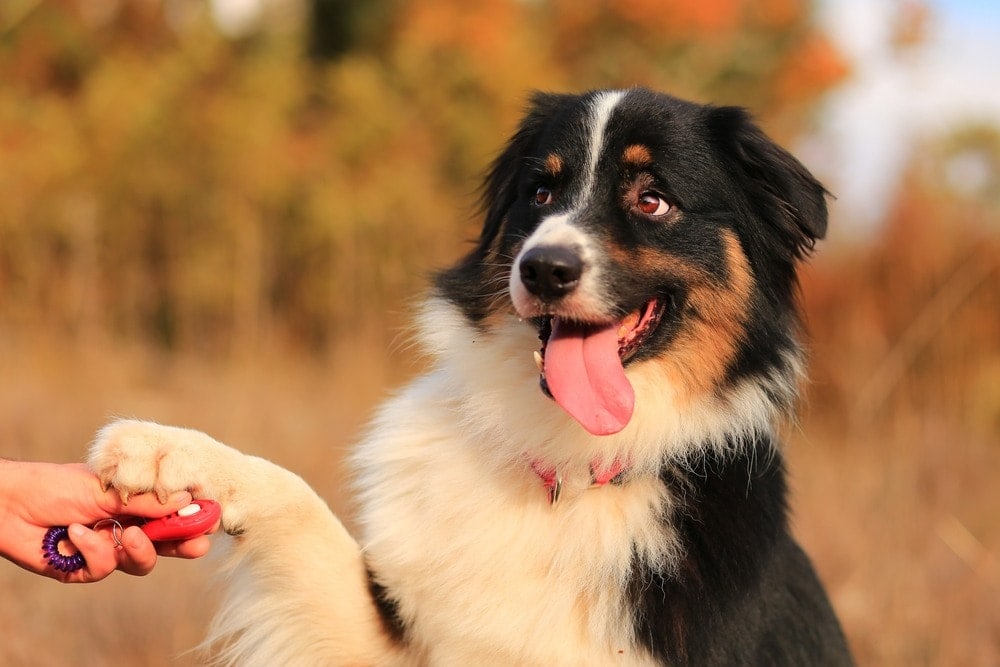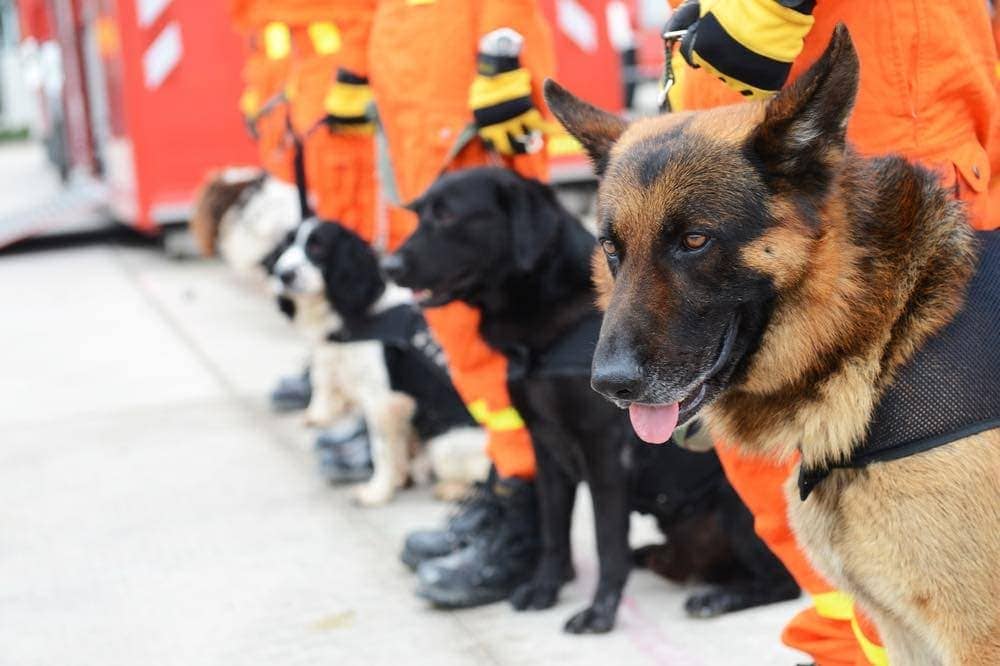Can Dogs Eat Rye Bread? Vet-Reviewed Nutritional Info & FAQ

Updated on
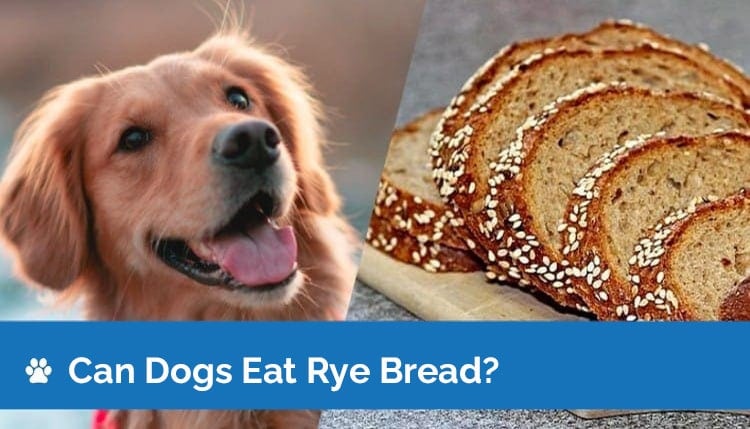
If you have a loaf of rye, you may wonder if dogs can eat rye bread. After all, many human foods are hazardous for our furry buddies. The good news is rye bread is non-toxic, and it won’t threaten the life of your dog. However, you must take precautions before feeding it to your pup.
Some dogs have allergies that make them intolerant of rye bread. Some rye may also contain ingredients that can make your pet very sick. Let’s find out what to look for so you know your dog is safe.
What Is Rye Bread?
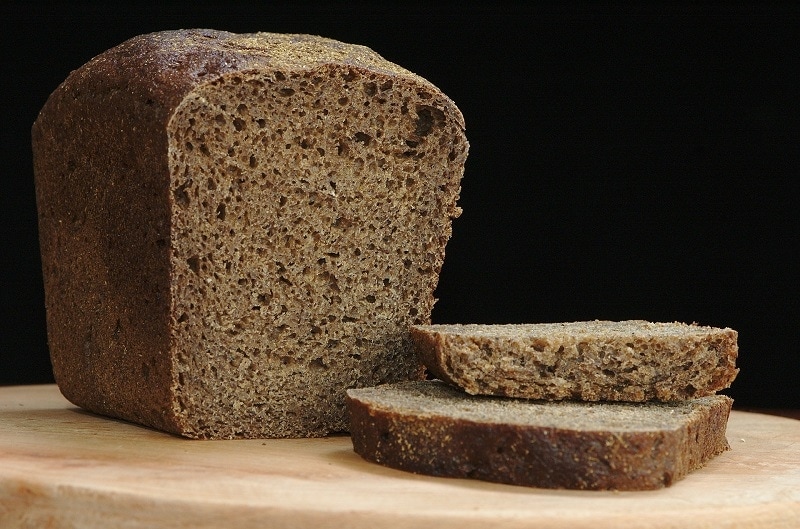
Rye bread is a combination of bread flours and crushed rye kernels. The loaves can turn out extraordinarily dark and dense or lighter colored and textured. It depends on how the bread is baked and what ingredients the baker uses.
Rye usually has a strong taste and a tough exterior, making it perfect for fondue dips, sandwiches, and other pairings. It is also revered for being much healthier than traditional store-bought white and wheat loaves of bread.
Dogs can have traditional bread as long as they have no allergies to grain, but they don’t benefit from eating rye bread or any bread for that matter.
Possible Health Benefits of Rye Bread
Rye bread is full of valuable nutrients and has become a popular choice due to its benefits. However, these potential health benefits may be considered for people, compared to white and wheat bread, but they cannot be extrapolated to our canine friends. Even research showing some of the possible health benefits of rye bread in people, compared to other types of bread, is based on limited research.
Like any human food you may be tempted to offer your pup, remember to do it under your vet’s advice and only as an occasional snack, not an everyday meal. However, rye bread is full of fiber, which may help digestion.
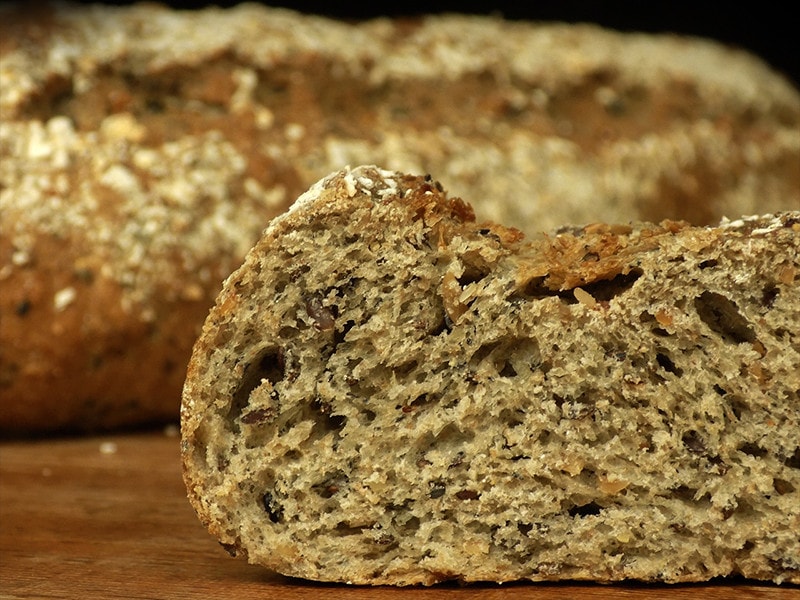
Downfalls of Rye Bread
Even though rye bread is okay for most canines, it should never become a staple of your dog’s diet. A few bits here and there will make a tasty snack, but too much is unhealthy.
- High Carb Content—If you have a calmer dog that doesn’t exercise as frequently, giving them calorie-dense, carb-filled bread can lead to obesity.
- Potential Allergy Trigger—It’s possible that rye bread can trigger allergies in dogs who can’t handle grains or gluten.
- No Significant Health Benefits—Your dog will not benefit from eating rye bread in any way, so feeding balanced and complete high-quality dog food and nutritional snacks is the only way to ensure they get all the nutrients they need.
- Moldy Bread is Harmful for Dogs—Never give your dog moldy bread since it may contain fungal toxins that lead to profound digestive and neurological signs.
Dogs & Allergies
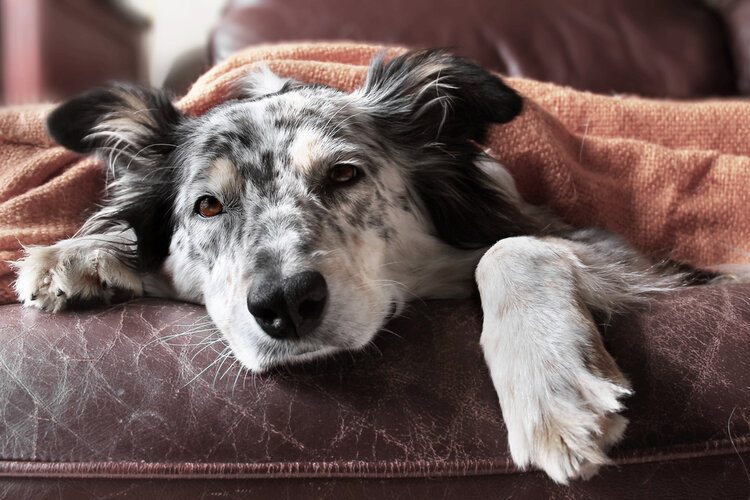
Rye bread contains less gluten than traditional wheat flour. However, if you have a rye or gluten-sensitive pup, rye bread may irritate their digestive tract. The chances are high that you have noticed this issue with certain dog foods before, so you might already suspect your dog may have a food allergy. In that case, speak to your vet about a dermatological workup, food trial, and allergy testing.
If you notice any adverse signs, your dog might not be a good candidate for rye or any other bread.
Signs of Grain Food Allergy
Dogs can have allergies to grains in their diet; some might only be sensitive to gluten, while others can have no grain.
- Skin irritation and itching
- Frequent ear infections
- Yeast infections
- Red, irritated paws
- Diarrhea
- Gas
If you’ve noticed these signs, or if they display any after eating rye bread, consult your veterinarian to determine if allergies are, in fact, the root cause.

Dangers of Bread Dough
Even though bread is safe for your dog, the same sentiment does not extend to bread dough. Under no circumstances is it safe for your dog to eat raw dough. It has compounds in it that are extremely dangerous.
Bloat
Dogs and cats are highly susceptible to adverse reactions when eating bread dough. Inside the stomach, there is a lot of moisture, and it is warm. As the yeast dough rises in the stomach, it can lead to bloat. In some dogs, especially with large and giant deep-chested breeds being more prone, bloat can lead to a life-threatening condition of Gastric Dilatation and Volvulus or GDV.
This condition causes gas to build in the stomach, causing a distended, painful abdomen. GDV can be fatal in 15% to 20% of cases, even with appropriate treatment, so it’s essential to watch for any signs. Some signs of bloat include:
- Abdominal swelling
- Restlessness
- Gagging and retching without being able to bring anything up
- Panting and labored breathing
- Drooling
- Collapse and shock
Without treatment, bloating results in death, so make sure to get them to a vet right away if they consume raw dough.
Final Thoughts
Even though your dog can enjoy bread, some ingredients are less than favorable for your pup. So, if you pass them a few morsels of your rye bread, all should be well if you check that it’s pure, baked rye bread. However, your dog shouldn’t eat rye bread if they’re allergic to grains. Before serving your dog rye bread or other treats, check with your veterinarian to ensure it’s okay.
See also:




